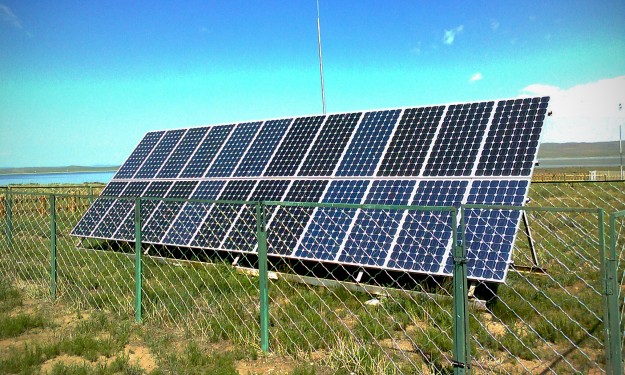Widgetized Section
Go to Admin » Appearance » Widgets » and move Gabfire Widget: Social into that MastheadOverlay zone
Xcel’s Colorado Energy Plan viewed as key to cutting emissions, boosting renewables

Wiki Commons photo
Minnesota-based Xcel Energy – Colorado’s largest electricity provider with 3.1 million customers – wants the state to approve its massive “Colorado Energy Plan” that would dramatically increase renewable energy consumption and decrease greenhouse gas emissions.
Not surprisingly, Colorado conservation groups are ecstatic about a plan that would see the state generating 55 percent of its electricity from renewable sources such as wind and solar in just eight years. Colorado mining and oil and gas groups are considerably more skeptical.
For Colorado’s mountain communities, the issue really comes down to a race against the clock for economies dependent on cold weather, plentiful snowfall, abundant spring runoff and healthy streams and rivers. Rising temperatures and drought conditions threaten all of those things.
Anyone currently attending the GoPro Mountain Games in the Vail Valley should care deeply about the CEP and its potential to keep action sports alive and well in Colorado.
The CEP, which was first floated to the Colorado Public Utilities Commission by Xcel in 2017, would add 700 megawatts of solar power, 1,100 megawatts of wind energy and 225 megawatts of power storage key to providing electricity when the sun isn’t shining and the wind isn’t blowing. It would be the largest battery storage project in the nation.
The CEP would also close down two coal-fired power plants 10 years earlier than expected and save Xcel ratepayers an estimated $213 million. All of that, Xcel says, would occur while simultaneously cutting carbon pollution by nearly 60 percent of 2005 levels by 2026.
“The fact of the matter is this: renewable energy like wind and solar will save ratepayers money while cleaning up carbon pollution,” Maria Handley, acting executive director at Conservation Colorado, said in a press release Wednesday.
“Nearly 10,000 Coloradans showed their continued and resounding support for clean energy by speaking out for this plan, and the economics prove that it’s time for our transition away from coal,” Handley added. “We’re thrilled to live in a state that continues to be a leader in the nation when it comes to the environment and clean energy, and we encourage our Public Utilities Commissioners to approve the Colorado Energy Plan.”
Colorado remains a majority coal state despite the ongoing efforts of policymakers to diversify the state’s power load. Cleaner-burning natural gas accounts for an increased share, but the state still gets the vast majority of its electricity from non-renewable sources.
The CEP would replace two coal-fired power plants in Pueblo County with three separate solar projects and the battery storage facility, reducing Xcel’s carbon emissions by 4.5 million tons a year.
Stan Dempsey, Jr., president of Colorado Mining Association, says the Trump administration is making positive headway toward reviving the nation’s coal-mining industry, but that his organization generally hasn’t taken a position on Xcel’s CEP, which would largely reduce consumption of coal from Wyoming.
“The Pueblo plan affects Wyoming coal, and we’ve not taken a position,” Dempsey said in a late February interview with RealVail.com. “We have kind of been talking to labor and we’ve been talking to community members down there.”
Dempsey says he’s concerned about the impacts to large, industrial electricity users.
“Xcel is attempting to make the case – and it’s an open jury on this – that their plan will provide electricity cheaper – depending on how you value the retiring of two coal-fired power plant assets,” Dempsey said. “That’s the regulatory fight. How do you value that stranded cost?”
Those costs need to be factored in, Dempsey argues.
“That’s going to be the economic questions. Does the Colorado Energy Plan really provide reliable, consistent electricity, particularly for large industrial customers, cheaper than what they can get now?” Dempsey said. “The politics are inserted. Colorado over the last dozen years has changed the way they evaluate those inputs. The PUC does have a modified mandate to consider some of those environmental factors, and you have a renewable portfolio standard in Colorado.”
The Colorado Public Utilities Commission is now taking addition public input on the CEP.


